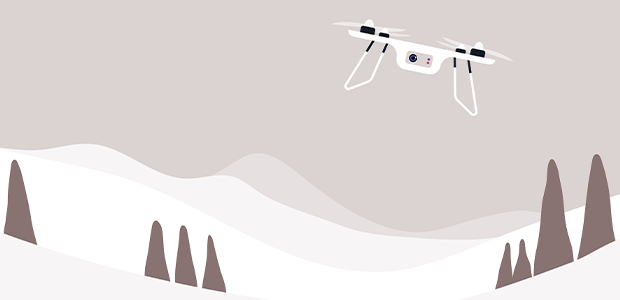
AI-enhanced drone technology can reduce the demining process
A new whitepaper from UK-Ukraine TechExchange, a collaborative forum around the key issues affecting the war in Ukraine and its future rebuild, explores how cutting-edge innovation can expedite the demining process and Ukraine’s post-war recovery.
With contributions from the Tony Blair Institute for Global Change (TBI), Disarmco, Transimpex, Fenix Insight, and Dropla Tech, the paper also outlines six steps the public and private sector, including philanthropic organisations and investors, should take to reduce the time and cost of safely removing explosive remnants of war (ERWs) while increasing the accuracy of such operations.
Ukraine is currently the most mined country on the planet, and the World Bank estimates that it will cost $34.6 billion to remove these foreign objects from the ground. Russia’s full-scale invasion of Ukraine has resulted in tragic loss of human life and widespread casualties, as well as severely impacting the economy. Pre-war, agriculture accounted for 41% of Ukraine's total exports and provided employment for 14% of the population. The use of mines, which renders large swathes of Ukraine not arable, is detrimental to its economy and status as the ‘breadbasket of the world’. An inefficient and inaccurate demining process has widespread implications for global food security.
Based on extensive interviews with experts within the demining sector, the recommendations made by TechExchange are designed to emphasise the role of technology in demining and expedite the time it takes without compromising safety or accuracy. The whitepaper has discovered that harnessing technology such as AI and drones to bypass issues around landmine pattern detection can make threat identification faster and more accurate; reducing the time it takes by 90 years. Implementing the recommendations will provide a blueprint for demining, as the prevalence of mines is a global issue with widespread ramifications. However, the whitepaper has found that one of the most pressing problems facing demining is the slow-to-adopt approach regarding new, modern technologies by historic players within the field.
The six recommendations in full:
- The rapid acceleration of the demining process cannot wait until the war is over; it must begin today to restore agricultural land essential for Ukraine’s future rebuild
- Technology will make the demining effort faster, safer, and more accurate. However, the sector must first build trust in new innovation and enhance collaboration with startups developing these solutions
- Key stakeholders in demining must now modernise, particularly in governance. The new certification body should reduce the barriers for early-stage companies to impact the demining effort
- All those working in the sector should improve cross-sector collaboration and data management to facilitate the current and any future technology rollout
- The Ukrainian government, alongside private investors, must step up to find new ways of financing technology for demining, not just to secure Ukraine’s future but for future returns, too
- Government and private investors should also recognise that while the technology rollout will be unavoidably costly in the short term, it will save billions in the long term
Andriy Dovbenko, Founder and Principal of UK-Ukraine TechExchange, said: “We cannot wait until the war in Ukraine is over to begin demining. Leaving Ukraine riddled with mines is condemning the nation’s people to suffer immeasurably; not only can it be a death sentence or source of injury, but it also means the land cannot be used for agriculture, which is a key component of the Ukrainian economy. Technology can overcome these challenges, and we – as investors, innovators, organisations and governments - must collaborate to achieve what should take a century in a decade. Necessity is the mother of innovation and over the invasion, Ukraine has shown the world what’s possible, especially when it comes to things like electronic warfare. It now has the opportunity to do the same to help improve the detection and clearance of landmines, help others across the world – from Vietnam to Congo - apply proven innovative approaches and new technologies.”
“With a change in sentiment regarding international support, and the US – the largest donor for mine clearing programmes – halting its funding, Ukraine has little choice but to rely on technology, not international financial aid, to help speed up the process. Greater private investment, philanthropy and the fostering of a thriving startup ecosystem is required to alter the demining industry for the better,” Dovbenko continued.
For more startup news, check out the other articles on the website, and subscribe to the magazine for free. Listen to The Cereal Entrepreneur podcast for more interviews with entrepreneurs and big-hitters in the startup ecosystem.

